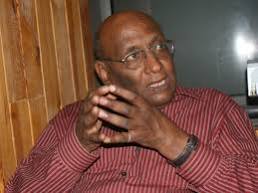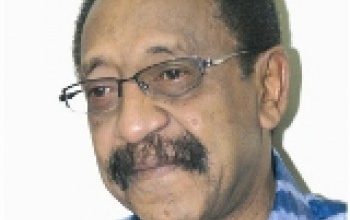Opinion
Hemedti: The Tribe Brought Out its Burdens And he Spells Out What is The Matter With it!!! (1-2)

By: Abdullah Ali Ibrahim
Abdulhafeez Maryoud, the columnist wrote that the “Rapid Support Forces (RSF) attacks the Sudan Armed Forces (SAF) on basis of “clans and rural leaders.” The phrase refers to traditional tribal systems. The nomad leaders were the leaders of the times when nomadic leaders prevailed. They had the right, for example, upon victory to seize whatever they wanted from the properties of the vanquished side, no one disputed this right.
It is known that recruitment within the RSF is mostly tribally based and no one is recruited on individual merits. Mohamed Hamdan Dagalo who is its leader, kept approaching tribal leaders, known as the men of the native administration, to send young men from their families to lead each group. This mobilization plan seemed to have negative results when his forces reached more than 100,000 troops. The tribe’s bond strengthened their motivation to stand strong in the battle field and even sacrifice their lives therein.
The tribe, as a political unit, is slippery and insecure. Dagalo himself experienced the tribal whims upon his stay among tribal groups in western Sudan, his area of influence, in the winter of 2022, determined not to return to Khartoum until he has settled their animosities. However, he returned two months later to admit the impossibility of his demand in a frank speech during a meeting with members of the native administration. He denounced before them uselessness of ding over an unresolved dispute, such as the ownership of a plot of land. He asked them to review their accounts with regards to conflicts in their countryside and reconsider the reasons behind these conflicts. He also asked them to return to their home areas to resolve the disputes. He added that it was high time for them to be in politics while staying in “five-star hotels.” He told the native administrators in South and West Kordufan states to launch tribal reconciliation: “We want no more problems.” He described those who were behind those conflicts as hypocrites. He urged tribal leaders “get rid of the germs within yourselves which are killing your people.”
Hemedti did not stay long in the war milieu for the germs of tribalism to splash out over him. The fragility of his recruitment systems on basis of the tribe has surfaced. The Bani Halba and Salamat tribes, who are part of the Attawa alliance (Pan-Arab) as will be mentioned, renewed their historical struggle over ownership of an area. Salamat demanded a right in the Area of Bani Halba, which was not permitted by nomadic norms or the laws of the land. They did not clash this time, as they were all in the RSF, until the tribe came to take the lead among its members. The members of the RSF in the two groups turned back to their tribe looking for protection. They returned to engage in war with their families armed with heavy weapons and four-wheel-drive vehicles, mostly RSF equipment.
Only yesterday, RSF succeeded in the second round of its efforts to contain their bloody fighting, which lasted three months after the failure of the first round last September. There is nothing in the reconciliation document to indicate that it addressed the roots causes of the crisis between them. Successive governments in Sudan preceded the “RSF to conclude such a reconciliation, which was only a sedative, not a final remedy.
Misfortunes do not come singly
A report was widely circulated a few days ago that an attack by the RSF was imminent against Al-Nuhoud town, the capital of the Hamar tribe in Western Kordufan State, and that the group’s leaders were searching for ways to repel it, and that this confrontation would be between the “Missiriya” tribe and the “Hamar” tribe, as if the “Missiriya” and the RSF were one thing.
In a video broadcast on the Internet, a leader of the RSF warned a crowd not to disperse as tribes such as the Missiriya, Rizeigat, Bani Halba, and Salamat, but that they have to stick to their unity as Attawa (Pan-Arab). It is noteworthy that the Policy of Attawa did not attract attention although it is not recent. On November 29, 2014, the Sons of Pan- Arab Gathering outside Sudan published a statement holding the central government and West Kordufan State responsible for the strife between two branches of the Missiriya tribe. It accused those government departments of providing them with weapons and money to fight so that those seeking sedition would secure rights to land that the government would seize to establish an oil facility and compensate its owners.
Summary of what the video referred to:
The case is a Attawa case. If it matters to you them come and be recruited (he said that it is just like the Popular Defense). Don’t come as sub –tribes nor come as tribes. Don’t bring anyone as a leader. We will consider you as a group of a thousand fighters, we recognize no leader from any group. Leaders are selected from among the RSF recruit’s merits. No one comes from any other quantity except the one we as RSF selected. We know the right man for the right position. We feel this protest that there is something unnatural. We have a feeling that something is going beneath this surface. There is confusion among people. We RSF are now Attawa. We do not discriminate as to say these are Missiriya, these are Rizeigat. It’s just a Attawa. An ethnic man, a tribal man, should stand far away. Don’t come to us as Rizeigat. Come just as a Attawa.



